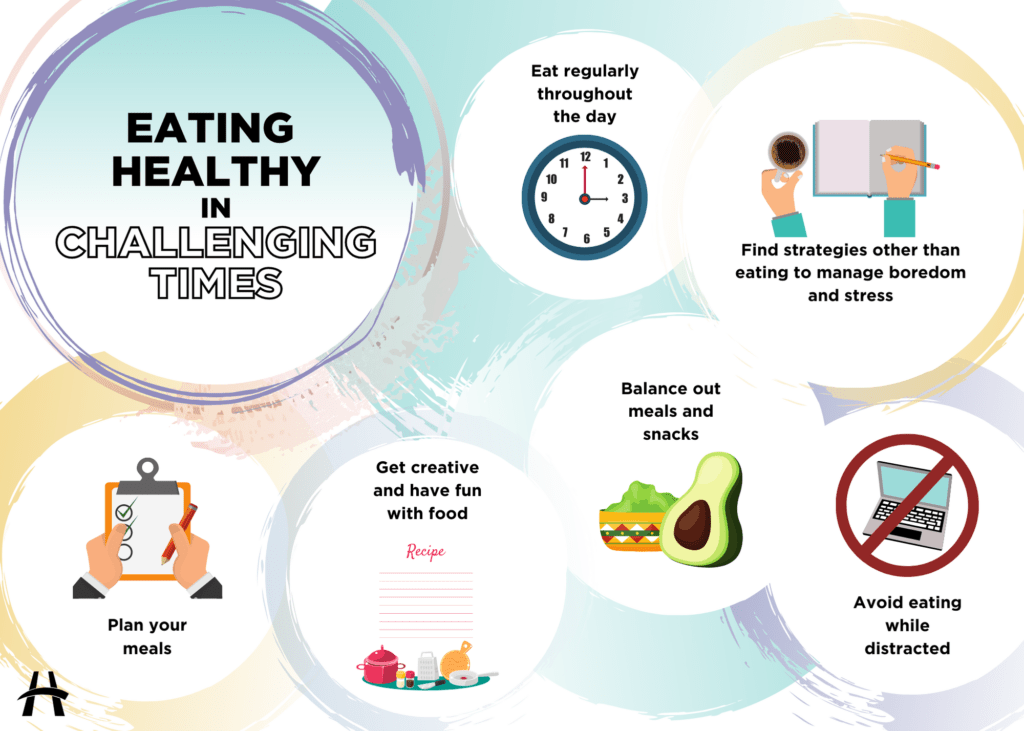
7 tips to healthier eating in challenging times
Eating healthy in uncertain times can be challenging – especially when there are barriers like tight finances, limitations in grocery shopping, limited food supply, boredom, fluctuations in mood and appetite, and changes in physical health.
Yet it’s important that we do not forget about our food intake. Why and how we eat can be as important as what and how much we eat. Check out the following strategies to help you optimize your eating habits:

- Eat regularly throughout the day
Even if your daily schedule has changed, aim to eat every three to four hours that you are awake. Doing so will provide adequate fuel for your body, keep your brain working optimally, and prevent you from experiencing extreme hunger that may lead to overeating or eating less healthfully.
- Balance out meals and snacks
Meals and healthy snacks should include a source of carbohydrates to provide fuel, as well as some protein and fat to slow down digestion and keep you feeling energized longer. When building meals, consider using the balanced plate visual from Canada’s Food Guide.
- Avoid eating while distracted
Avoid eating in or around places where your brain can be distracted and unable to focus on what (and how much) you are eating. This includes eating in front of the television, computer, while on the telephone, or in your car. Eat in a designated dining area. If you are unable to do so, turn off all electronics while you are eating.
- Find strategies other than eating to manage boredom and stress
In challenging times, we may eat in response to triggers other than physical hunger. It can help to find activities to replace eating in these situations, such as: journaling, working on a crossword puzzle, or putting in a load of laundry. Think about creating your own list of strategies.
- Plan your meals
One of the best ways to become more intentional with your eating is to create a plan. Write out a grocery list, plan and prep meals in advance, and find creative ways to use leftovers.
- Create (and stick to) a grocery list
Write out a grocery list that is based on your meal plan, while keeping in mind what is on sale that week. When shopping, limit buying things that are not on your list. Include foods that will save you time when you are in a pinch, such as canned and frozen vegetables and fruit. These make a great addition to other foods you are including as the bases of your meals and snacks.
- Get creative and have fun with food
It is easy to get in a rut with eating, and lose all the enjoyment of this essential activity. Aim to try a new food or recipe once a week, and get family members involved. You can also challenge yourself by trying to combine pantry items into new dishes.
 Monica Szeliga is a Registered Dietitian at the Michael G. DeGroote Pain Clinic
Monica Szeliga is a Registered Dietitian at the Michael G. DeGroote Pain Clinic
